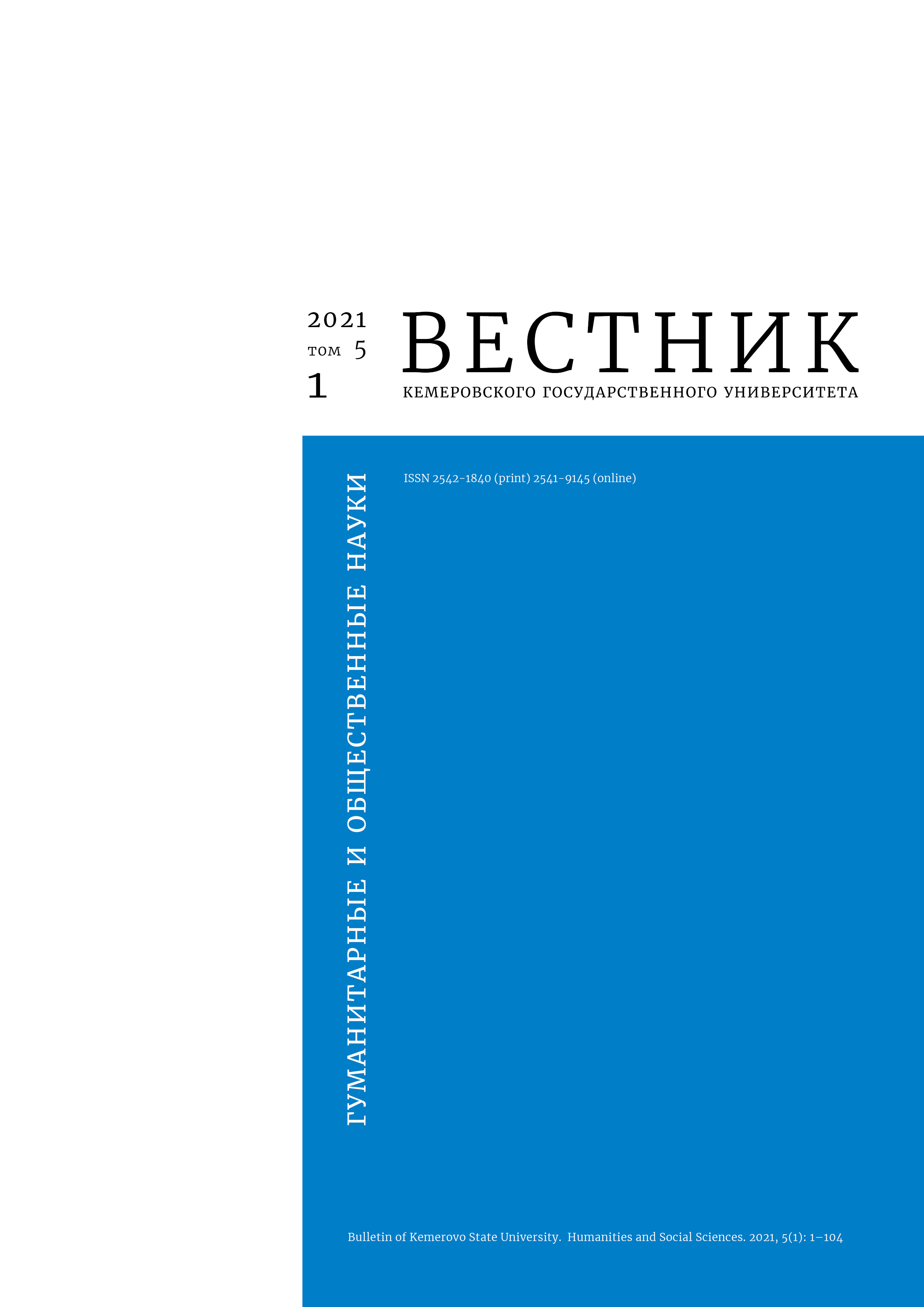Kemerovo, Russian Federation
Kemerovo, Russian Federation
UDC 37
The present research featured the conceptual foundations of pre-school spatial learning environment with its interdependent semantic components and a potential for new products. The study was based on the systematic approach to the problem as an integral complex of interrelated elements. A thorough analysis of various definitions of spatial learning environment made it possible to separate it from the concept of learning environment. Both internal and external environment of educational organizations should create such spaces that stimulate children's development. The article also describes the concept of pedagogical design as an important multifaceted phenomenon and introduces efficiency criteria and a basic algorithm of actions: mission, environment components, functions, principles, goals, tools, requirements, directions of activity, and resource provision. Designing the strategic and tactical guidelines can improve the quality of early childhood. The conceptual foundations of design were formulated as tools that facilitate the movement towards solving the problem in the system of theoretical and practical steps. The conceptual foundations include organizational and pedagogical conditions that ensure the high-quality level of life in all subjects of learning process in pre-school educational establishments.
learning environment, spatial environment, learning environment, information field, organizational and pedagogical conditions
1. Shendrik I. G. Theoretical foundations of the design of the learning environment of the subject. Ekaterinburg: Izd-vo Ros. gos. prof.-ped. un-ta, 2006, 198. (In Russ.)
2. Shalaev I. K., Veryaev A. A. From educational environments to educational space: concept, formation, and properties. Pedagog: nauka, tekhnologiia, praktika, 1998, (1): 3-12. (In Russ.)
3. Iasvin V. A. Educational environment: from modeling to design, 2nd ed. Moscow: Smysl, 2001, 366. (In Russ.)
4. Kislyakov P. A. Ecopsychology of educational environment: design and monitoring approaches. Ekologiya cheloveka, 2017, (4): 42-50. (In Russ.) DOI:https://doi.org/10.33396/1728-0869-2017-4-42-50
5. Fedorov I. M. Transition from educational environment to educational ecosystem. Molodoi uchenyi, 2019, (28): 246-250. (In Russ.)
6. Bozhovich L. I. Problems of personality formation, ed. Feldshtein D. I., 3rd ed. Moscow: Institut prakticheskoi psikhologii; Voronezh: MODEK, 2001, 352. (In Russ.)
7. Balabanova N. V. Educational environment of the school and the problems of personality socialization. Krasnodar: KubGU, 2002, 102. (In Russ.)
8. Brykin Yu. V. Terminological analysis of educational environment in modern science. Vestnik RMAT, 2016, (1): 86-90. (In Russ.)
9. Tekeeva A. R. Educational environment as a condition of development of the personality and its subjects. Kant, 2018, (2): 132-137. (In Russ.)
10. Ivanova S. V. Education space and education milieu: in search of differences. Tsennosti i smysly, 2015, (6): 23-28. (In Russ.)
11. Belyaev G. Yu. Pedagogical characteristics of the educational environment in various types of educational institutions. Cand. Ped. Sci. Diss. Moscow, 2000, 157. (In Russ.)
12. Laktionova E. B. Educational environment as the development condition persons of its subjects. Izvestiia Rossiiskogo gosudarstvennogo pedagogicheskogo universiteta im. A. I. Gertsena, 2010, (128): 40-54. (In Russ.)
13. Ponomarev R. E. Educational space. Moscow: MAKS Press, 2014, 98. (In Russ.)
14. Novoselova S. L. Developing subject environment. Moscow: Tsentr "Doshkolnoe detstvo" im. A. V. Zaporozhtsa, 2001, 74. (In Russ.)
15. Gogoberidze A. G., Solntseva O. V. Pre-school pedagogy with the basics of upbringing and teaching methods. St. Petersburg: Piter; Piter Press, 2013, 464. (In Russ.)
16. Leksakova N. V. Developing educational environment in kindergarten: features of formation in accordance with the requirements of the Federal State Educational Standard for preschool education. Izv. Saratov Univ. (N. S.), Ser. Philosophy. Psychology. Pedagogy, 2019, 19(2): 221-225. (In Russ.) DOI:https://doi.org/10.18500/1819-7671-2019-19-2-221-225
17. Frumin I. D., Elkonin B. D. Educational space as a development space ("school of growing up"). Voprosy psikhologii, 1993, (1): 24-32. (In Russ.)
18. Senko Yu. V. Humanization of the educational environment at the university. Pedagogika, 2001, (5): 51-57. (In Russ.)
19. Zhilkin S. F. Sociological and pedagogical aspects of managing the educational space of an industrial city. Pedagogika, 2003, (3): 26-32. (In Russ.)
20. Fomina T. A. Search for new approaches to the management of personality development in the municipal education system. Zavuch, 2000, (7): 17-25. (In Russ.)
21. Tsuker A. A. Learning environment of the school. Upravlenie shkoloi, 2004, (27-28): 31-35. (In Russ.)
22. Leontev A. N. The doctrine of the environment in the pedological works of L. S. Vygotsky. Voprosy psikhologii, 1998, (1): 108-124. (In Russ.)
23. Kolesnikova I. A., Gorchakova-Sibirskaia M. P. Pedagogical design. Moscow: Akademiia, 2005, 284. (In Russ.)
24. Feldshtein D. I. On the state and ways of improving the quality of dissertation research in pedagogy and psychology. Alma mater (Vestnik vysshei shkoly), 2008, (1): 17-25. (In Russ.)
25. Mishchenko I. N., Kotlyar N. P. Design of the educational environment as a condition of education of a creative personality. Chelovecheskii kapital, 2019, (10): 54-61. (In Russ.)
26. Novikov A. M. Foundations of pedagogy. Moscow: Egves, 2010, 208. (In Russ.)
27. Sverchkov A. V. Organizational and pedagogical conditions for the formation of professional and pedagogical culture of future sports teachers. Molodoi uchenyi, 2009, (4): 279-282. (In Russ.)
28. Ippolitova N. V., Sterkhova N. S. Analysis of the notion "pedagogical conditions": essence and classification. General and Professional Education, 2012, (1): 8-14. (In Russ.)
29. Volodin A. A., Bondarenko N. G. Analysis of "Organizational and pedagogical conditions" concept. Izvestiia Tulskogo gosudarstvennogo universiteta. Gumanitarnye nauki, 2014, (2): 143-152. (In Russ.)
30. Gileva N. S. Creation of a subject-developing environment for children with disabilities. Molodoi uchenyi, 2015, (10): 1128-1139. (In Russ.)
31. Karabanova O. A., Alieva E. F., Radionova O. R., Rabinovich P. D., Marich E. M. Organization of a developing subject-spatial environment in accordance with the federal state educational standard for preschool education. Moscow: Federalnyi institut razvitiia obrazovaniia, 2014, 95. (In Russ.)



















